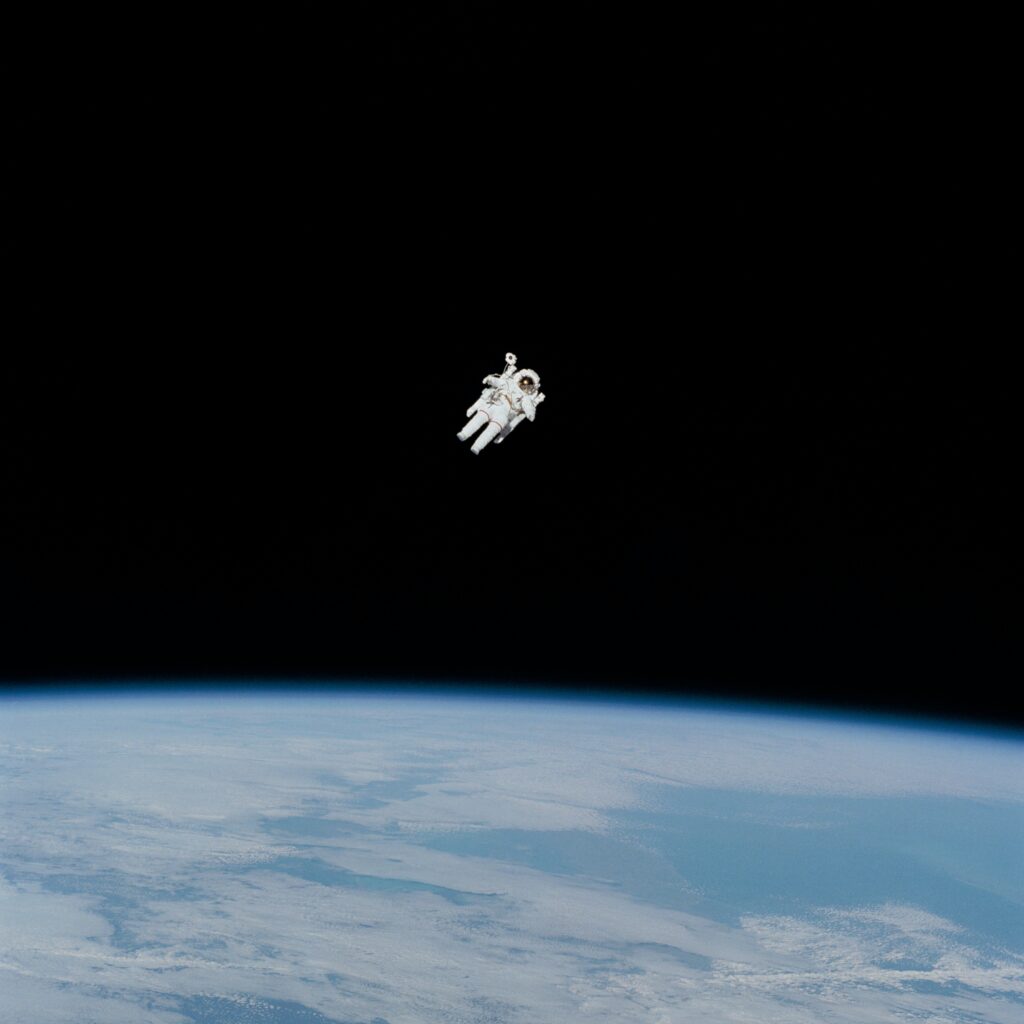Returning from the Cosmos to Our Home Planet: Empowering Sustainable Progress through Spacefaring Innovations

Introduction
The fascination with space exploration
Since time immemorial, our insatiable human curiosity has been sparked by the boundless wonders of space. This innate human curiosity pushes us to take courageous strides into uncharted territories, fueled by a deep longing to unravel the enigmas that lie tantalizingly beyond our grasp The innate human desire to explore has propelled us to reach for the stars, driven by a fascination that spans generations. From the early days of gazing at the stars to the monumental achievements of manned missions to the moon, space exploration has been a testament to human ambition.
The role of spacefaring innovations in sustainable progress on Earth
Although space exploration may appear distant from our daily routines, its impact on the sustainable advancement of our planet cannot be underestimated. Spacefaring innovations have revolutionized various industries and provided critical solutions to pressing environmental and societal challenges.
Exploring the Cosmos
Achievements in space exploration
Over the course of history, humans have accomplished impressive and remarkable feats in the field of space research, inspiring both wonder and admiration. From the trailblazing journeys undertaken by individuals like Yuri Gagarin and Neil Armstrong to the deployment of revolutionary space telescopes like Hubble, our collective efforts have propelled us to unravel the mysteries of the universe and gain profound insights into our own existence within it.
The challenges of long-duration space missions
Extended space missions present numerous challenges, including life support, energy supply, and waste management. These challenges have pushed scientists and engineers to develop sustainable technologies that can support human existence beyond the confines of Earth.
The need for sustainable technologies in space
Just as sustainability is crucial on Earth, it is equally vital in space. Creating environmentally-friendly technologies for space exploration guarantees the safety of astronauts and additionally creates an opportunity for humans to explore further into the universe without having a negative impact on the ecosystem.
Spacefaring Innovations for Earth
Benefits of space technologies for sustainable progress
Space technologies have found applications that significantly contribute to sustainable progress on Earth. From weather forecasting and disaster management to telecommunication and navigation systems, space-based innovations have become integral to our daily lives.
Satellite-based solutions for environmental monitoring
Satellites equipped with advanced sensors provide valuable data for monitoring our planet’s health. They enable us to track climate patterns, assess deforestation, monitor ocean currents, and detect pollution, empowering us to make informed decisions for sustainable resource management.
Harnessing solar power from space
The abundant and eco-friendly solar energy has the potential to substitute fossil fuels if we make use of solar power systems located in space to meet our energy needs. By collecting solar energy in space and transmitting it to Earth, we can tap into an almost limitless source of sustainable power.
Advancements in materials and manufacturing
Space exploration has spurred advancements in materials science and manufacturing techniques. Lightweight and durable materials developed for space applications find their way into industries on Earth, enhancing energy efficiency, reducing environmental impact, and improving product performance.
Transferring Knowledge and Technology
Collaboration between space agencies and industries
The cooperation between space organizations and corporations has resulted in productive alliances in the fields of investigation, progress, and creativity. By pooling resources and expertise, we can accelerate the transfer of space technologies to terrestrial applications, fostering sustainable progress across various sectors.
Spin-off technologies from space programs
Many everyday technologies have emerged as spin-offs from space programs. Some examples of these are memory foam, lenses that are resistant to scratches, and systems for filtering water, among others. These unexpected benefits highlight the indirect contributions of space exploration to sustainable development.
Knowledge exchange for sustainable development
The knowledge gained through space exploration can be shared globally to promote sustainable development. Through promoting collaboration among nations and sharing scientific discoveries and technological breakthroughs, we can collaboratively tackle worldwide difficulties and make progress towards a future that is more environmentally friendly and enduring.
Promoting Environmental Stewardship
Space-based observations for climate change monitoring
Advanced sensors installed in satellites help us keep a check on alterations in the Earth’s climate system. These satellites provide crucial details about fluctuations in temperature, movements of ice sheets, and the accumulation of greenhouse gases. Scientists rely on this information to comprehend climate change better and develop efficient means of mitigating its effects.
Satellite-enabled precision agriculture
Precision agriculture techniques, made possible by satellite imagery and data, optimize crop production, reduce resource waste, and minimize the environmental impact of farming practices. By monitoring soil moisture, crop health, and weather patterns, satellites help farmers make informed decisions and promote sustainable food production.
Managing natural resources with space technologies
Space technologies enable us to monitor and manage natural resources more efficiently. From tracking forest cover and water availability to monitoring wildlife habitats and marine ecosystems, space-based observations play a crucial role in preserving biodiversity and ensuring responsible resource management.
Inspiring the Next Generation
Encouraging STEM education through space exploration
Space exploration sparks interest and acts as a driving force for motivating youth to follow a path in the fields of science, technology, engineering, and mathematics (STEM). By engaging students in space-related activities and educational programs, we can nurture the next generation of innovators who will tackle sustainability challenges.
Motivating future innovators to tackle sustainability challenges
Humanity is confronted with major difficulties such as the shortage of resources and climate change that necessitate new and creative solutions. Space expeditions function as a demonstration of human intelligence and determination, inspiring upcoming innovators to possess the confidence that every issue can be resolved while motivating them to confront problems connected to sustainability directly.
The role of space missions in fostering global cooperation
Space exploration transcends national boundaries and unites countries in a shared pursuit of knowledge. Collaborative space missions foster international cooperation, promote diplomacy, and build bridges between nations, creating a global community that recognizes the importance of sustainable progress for the benefit of all.
Challenges and Ethical Considerations
Addressing space debris and sustainability in space
The proliferation of space debris poses a significant threat to future space exploration and sustainability. Efforts must be made to develop technologies for debris mitigation and removal, ensuring a sustainable and clutter-free space environment for future generations.
Balancing investments in space exploration and terrestrial priorities
Allocating resources to space exploration should be balanced with addressing terrestrial priorities such as poverty alleviation, healthcare, and education. By striking a balance between investments in space and addressing societal needs, we can ensure that sustainable progress benefits both space exploration and our home planet.
Ensuring equitable access to space technologies
As space technologies advance, it is crucial to ensure equitable access and benefit-sharing among nations and communities. Bridging the digital divide and providing access to space-based data and technologies to developing regions can empower them to address their unique sustainability challenges and participate in global progress.
Conclusion
The transformative power of spacefaring innovations
Spacefaring innovations have revolutionized our understanding of the universe and brought about remarkable advancements with tangible benefits for sustainable progress on Earth. They possess the ability to revolutionize various sectors, safeguard our ecosystem, and propel societal and financial progression.
Empowering sustainable progress on Earth through space exploration
By harnessing the knowledge and technologies derived from space exploration, we can empower sustainable progress on Earth. From monitoring climate change to improving agricultural practices, spacefaring innovations offer solutions that are essential for addressing the complex challenges of our time.
The collective responsibility for a better future
Achieving a sustainable future requires collective action and shared responsibility. Governments, industries, and individuals must work together to leverage spacefaring innovations and ensure their equitable distribution for the benefit of all. We have the ability to create a future where both sustainable progress and exploration of space work together to lead us to new discoveries, all while protecting our planet.
The professional dissertation writers from dissertation-writers provides assistance to students in crafting essays, concentrating on developing their writing expertise and comprehension of scholarly standards. It supplies customized support, in-depth feedback, and a variety of educational aids, all aimed at encouraging academic development and ethical writing conduct.
This online resource and Sequence Calculator calculatorprofessional is designed to aid students in essay composition, emphasizing the enhancement of writing skills and familiarity with academic criteria. It offers individualized support, thorough reviews, and a selection of educational tools, aimed at boosting academic progress while upholding standards of academic integrity.

